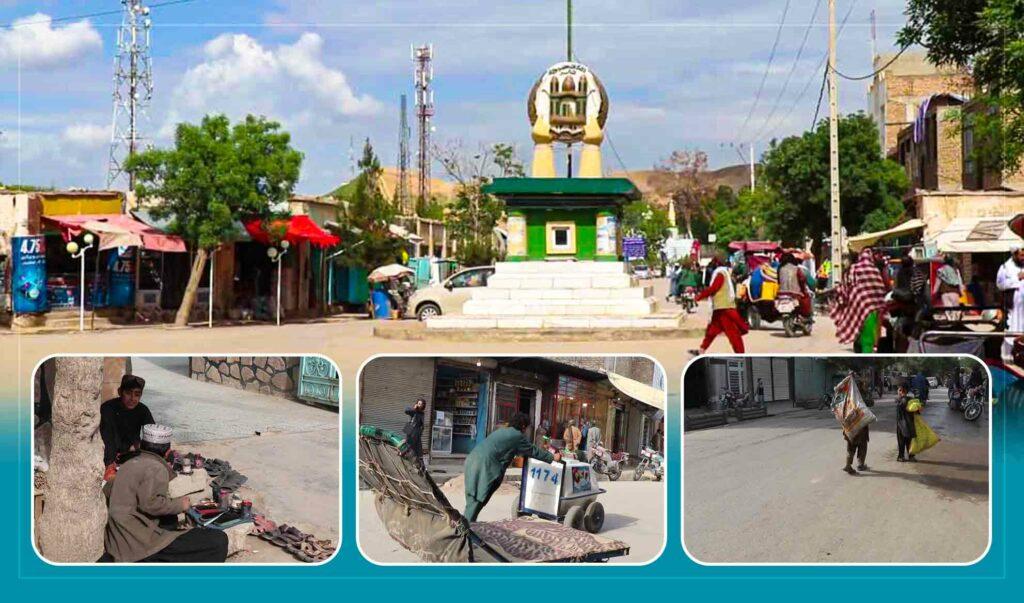QALA-I-NAW (Pajhwok): Some children working in northwestern Badghis have asked the government to provide them with education opportunities because according to them economic problems have forced them to leave schools and work.
Abdul Sammad 14, who polishes boots on one of the Qala-i-Naw Roads, told Pajhwok Afghan News he was the only breadwinner of his six-member family and had no option but to work.
“I polished shoes for the past three years, my father is old and has a spinal cord problem due to which he could not work, daily I earn 100 afs to 15 afs,” he said.
Getting an education was his only wish, but he could go to school due to economic problems, he asked the Islamic Emirate of Afghanistan (IEA): “I want to study, and become a doctor in the future, I ask the IEA to provide me and children who are the breadwinners of our families like me education opportunities.”
Sher Ali, 12, another child who polishes shoes, said his father was a drug addict and currently receiving rehabilitation treatment.
He said: “By polishing shoes daily I earn 80 afs to 100 afs which is used to buy food and some other items.”
He also asked the government to provide education opportunities for children like him and others.
Sakhi Dad, 15, is another child in Qala-i-Now City who works as a blacksmith, he said: “I really want to study but I have to work and hove no other option.”
He also urged the IEA to provide education opportunities for him.
Experts, however, believed that these situations have negative consequences for society adding that it was the government’s responsibility to provide learning opportunities for deprived children.
Nisar Ahmad Akbari, Badghis University teacher, said the absence of these children from education causes problems at the family and community level, these children are the future builders of the country.
He added the provision of education for such children is the basic responsibility of the government, and every possible effort should be made to provide education for these children.
He suggested the government and responsible institutions should carry out a detailed survey and separate the needy children, give awareness the families and attract the deserving children.
Akbari said: “In the future, these children will be deprived of education and training, they will be deprived of the blessing of their families, their social status will be disturbed, in the future they will be a burden on the society, they may create security risks and it is necessary to prevent this problem.”
Tour Jan Khadami, head of the Work and Social Affairs Department, said that recently 50 children were rounded up and referred to the orphanage.
He said: “The number of street children have increased, but the exact number is not known, and recently we collected 50 street children, seven girls and 43 boys, and we have different plans in the future to solve this problem.”
Without going into detail he said different programmes would be launched in the coming week to address this problem.
nh








GET IN TOUCH
NEWSLETTER
SUGGEST A STORY
PAJHWOK MOBILE APP